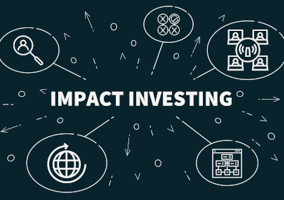Being a trustee can involve a number of highly stressful situations. A challenge we commonly come across on the risk register is around the threat of a global event impacting investments. The prospect of permanent capital loss is something that requires meaningful attention.
The failure to contain coronavirus has meant that Europe has now become the epicentre of the spread. With the total shutdown of many countries’ borders, closure of most restaurants and bars, and a ban on large gatherings, it is clear there will be a meaningful impact on global growth. This is an unusual situation as many sectors (such as airlines) are currently generating little or no revenue. Those that are highly leveraged with large debt requirements will very shortly be at risk of running out of funds. Although banks are significantly better capitalised than in 2008, there is a potential impact to this sector too.
In addition to this, problems have been intensified by a Saudi/ Russia oil spat. Equity markets have responded. The sheer pace of the crash over the past month has been unique.
It is important to remember that this situation is very different to the 2008 financial crisis. The one we find ourselves in now is firstly a humanitarian one, and secondly an economic one.
The market crash has been particularly exacerbated in the UK as the FTSE 100 is dominated by sectors that analysts expect to suffer more than others (eg energy and industrials). Those that are purported to perform well (eg IT) represent a relatively small element of the overall index.
This combination of factors makes it particularly challenging. Whilst the scenario we find ourselves in is unusual, market shocks are not. As a collective group of trustees there should be group understanding and accountability as to how investments might perform in any market scenario.
Now is a great time to take stock of your overall strategy. It is highly probable that your investment portfolio has performed very well over the last 10 years, with many investments doubling in value.
It is imperative that investments are reviewed with full consideration of the charity’s overall financial picture. Our belief is that this should start at investment policy level by ensuring that your existing investment governance is robust enough to allow manager accountability.
In most cases, the documents are either out of date or not particularly clear. Often, it’s both. For example, have you explicitly outlined your maximum downside tolerance? In many cases, the documents were created by decision-makers who are no longer with the organisation. Naturally, as your organisation evolves, so does the need to maintain and improve your investment governance.
Without a robust set of documents, it is very difficult to observe how your investment manager(s) is/are doing. “ The scenario we find ourselves in is unusual ” Not only should there be aspirational performance objectives, your policy should also include appropriate benchmarks, any income requirements, tolerances to risk, ethical criteria and diversification expectations.
The reason we insist on this is that we often see that an investment portfolio is viewed in isolation, and the objectives are often not commensurate with the wider strategy. There is a common trend that requires the need to introduce additional pots of money to support transformational projects and help manage deficits. Helping create a strategy with solutions that typically have a low correlation to traditional investments are often key to this.
The impact of drawing money from a traditional investment portfolio at times like this could catastrophically affect the longer-term strength of the charity, often without trustees realising. It is vital that the overall financial security of the charity must be understood in the context of the available funds, why the reserves are there and how they are being spent.
It is dangerous to start a review by focusing on performance, and the wider picture should be considered first. We are often contacted by charities to evaluate their investment managers and see whether they are competitive. Often, we find that the investments aren’t the problem but more so the overarching strategy which requires a refresh, and with it a stronger framework for communication and accountability.
Although this article may seem to be coming a bit too late (as the damage has been done), how you act from here is equally as important, and there may be things to consider that you simply haven’t thought of.
Trustees may get significant value from impartial and independent advice.
Max King is an assistant director at Epoch Consulting
This content has been supplied by a commercial partner. haysmacintyre sponsors the Sector Focus series.
Related articles












